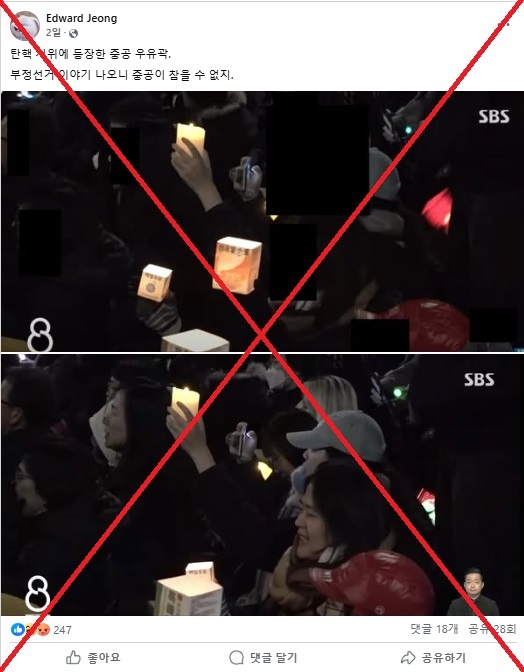The recent political turmoil in South Korea has seen President Yoon Suk Yeol narrowly evade an impeachment push in light of widespread protests against his government. These protests erupted after Yoon’s controversial attempt to impose martial law, a move that many critics deemed extreme and unjustified. Tens of thousands of South Koreans braved freezing temperatures to participate in demonstrations calling for his ouster, reflecting deep-seated dissatisfaction with his administration. A significant trigger for these protests was Yoon’s declaration of martial law, which lasted only six hours on December 3. This action involved deploying troops to the National Election Commission’s headquarters and the parliament, apparently in a misguided attempt to obstruct the legislative vote against his martial law declaration.
In the wake of the protests, a wave of misinformation circulated on social media, particularly on Facebook, where posts alleged that the demonstration was infiltrated by agents of the Chinese Communist Party. Images were shared that falsely identified protesters carrying candle holders made from milk cartons as evidence of Chinese interference. The claims insinuated that the presence of these cartons, purportedly linked to Chinese manufacturing, pointed to a conspiracy to undermine Yoon’s presidency. These narratives were tied to long-standing right-wing suspicions regarding foreign involvement in South Korea’s political processes, particularly amid unfounded allegations of election fraud in the previous elections that saw the opposition gain a significant victory.
As Yoon clings to power, investigations have developed around him and some of his close advisors, probing potential insurrection linked to the martial law episode. Despite his turbulent standing and the near impeachment, many of Yoon’s supporters remain convinced that foreign actors are conspiring against him. This resulted in a climate of fear and suspicion, with social media comments suggesting that these alleged “agents” were part of an organized effort to destabilize the current government.
A closer examination of the photo evidence presented in the social media posts revealed that the supposed “Communist Chinese milk cartons” were actually Taiwanese products. A local business owner, Go Geum-sook, clarified that these milk cartons were upcycled items used by demonstrators to create colorful candle holders during the rally. She emphasized her identity as a South Korean and condemned the claims as false manipulation of the facts. Along with her business partner, they confirmed that the cartons were brought back from a recent trip to Taiwan—a nation with its political identity distinct from China. This highlights the complex relationship that South Korea navigates with its northern neighbor and Taiwan.
Further scrutiny showed that the characters on the milk cartons were traditional Chinese characters, which are common in Taiwan but not typically used in mainland China. A rigorous search into the product revealed that they’re indeed manufactured in Taiwan, as supported by corresponding listings on a Taiwanese retailer’s website. This discrepancy doesn’t just reveal the challenges faced by political figures like Yoon but also sheds light on the underlying tensions surrounding Chinese-Taiwanese relations and their intersection with South Korean politics.
The spread of misinformation regarding the protests and Yoon’s martial law declaration underscores the volatile nature of public discourse in South Korea, especially as digital platforms like Facebook become central to shaping perceptions and narratives. The situation illustrates the broader impacts of political miscalculations and the rapid dissemination of false information, which can sway public opinion significantly. As investigations into Yoon’s conduct progress, the potential for further protests remains high, fueled not just by political discontent but also by the continued manipulation of facts in the public domain. The outcomes of these events could further redefine not only South Korea’s political landscape but also its relationship with Taiwan and China in an increasingly charged geopolitical context.

